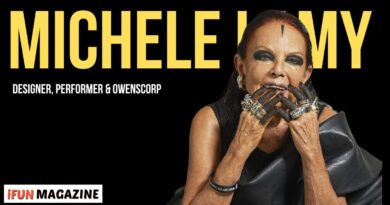Piers Paul Read was born on March 7, 1941, in Beaconsfield, Buckinghamshire. His father, Sir Herbert Read, was a recognized poet and art critic. His mother, Margaret Ludwig, was a talented musician.
Piers had a culturally rich German, Scottish, Irish, and Italian background. At age eight, he moved to Stonegrave, North Yorkshire, marking an essential phase in his life. He attended Ampleforth, a renowned Benedictine school that was crucial in shaping his religious beliefs.
The Catholic faith became a significant part of his identity, a spiritual foundation that remained throughout his life. His upbringing contributed to his later success as an author.
Career as a Writer of Piers Paul Read
Piers Paul Read began writing in the 1960s with Game in Heaven with Tussy Marx. His works often explored themes of morality, religion, and survival. He demonstrated a keen interest in human nature and ethical dilemmas.
His fiction and non-fiction pieces reflect deep philosophical questions. Through storytelling, he examined the complexities of societal norms and beliefs. He produced a prolific output that spans multiple literary forms. His novels often provide insight into the human condition and historical contexts.
Read’s biographies offer detailed accounts of exceptional individuals’ lives. He also wrote plays that highlight both personal and universal conflicts. Read’s historical accounts showcase pivotal moments in modern history. His writing style is engaging and thought-provoking.
Each piece invites readers to ponder profound moral and ethical questions. Despite complex themes, his works are accessible and relatable to many. Read’s diverse literary contributions solidified his reputation as a significant author.
About Piers Paul Read
We know all about Piers Paul Read in the following table.
| Aspect | Details |
| Full Name | Piers Paul Read |
| Date of Birth | March 7, 1941 |
| Place of Birth | Beaconsfield, Buckinghamshire, England |
| Nationality | British |
| Profession | Novelist, Historian, Biographer, Playwright |
| Education | – Ampleforth College (Catholic boarding school) |
| – University of Cambridge (Fitzwilliam College), studied History | |
| Writing Style/Genres | Fiction, Non-Fiction, Historical, Biographical |
| Famous Works | Alive: The Story of the Andes Survivors (1974) |
| The Free Frenchman (1986) | |
| A Married Man(1979) | |
| Scarpia (2015) | |
| The Death of a Pope (2009) | |
| Major Themes | Faith, Morality, Catholicism, Survival, History Politics |
| Awards | – Hawthornden Prize for Literature (1966, Game in Heaven with Tussy Marx) |
| – James Tait Black Memorial Prize (Alive) | |
| – Winifred Holtby Memorial Prize | |
| Notable Adaptations | Alive was adapted into a successful film in 1993. |
| Personal Life | – Son of Sir Herbert Read (critic, poet) |
| – Married; has four children | |
| Religion | Roman Catholic |
| Interesting Facts | Alive was based on real-life events involving a plane crash in the Andes. |
| – His works often explore moral and religious dilemmas. | |
| Recent Works | Scarpia (2015) a historical novel set in 18th-century Italy |
Major Works and Themes
Piers Paul Read is famous for Alive: The Story of the Andes Survivors, which made him famous. This book reveals his passion for human resilience and survival. His essential novels include A Married Man, The Free Frenchman, and The Death of a Pope.
These works often explore complex themes of moral dilemmas and human nature. Read focuses on the Catholic faith, which frequently appears in his narratives. His novels also delve into historical events and their impact on characters. The characters in his stories often face tough ethical decisions.
These elements reflect his fascination with tradition and religious beliefs. His writing makes readers think deeply about right and wrong. Piers Paul Read’s style is both accessible and reflective. His works remain popular and insightful for readers worldwide.
Also Explore : Emily McDaniel: Insights, Achievements & Success Story
Personal Life and Beliefs

Piers, the poet and critic Sir Herbert Read, is the father of Paul Read. His father’s literary instruction had an enormous effect on his childhood. Piers is a devout Roman Catholic who integrates his faith into his writings.
Religion plays a significant role in the themes he explores in his books. Piers finds inspiration in his Catholic beliefs, which guide his storytelling. He married Emily Boothby and has four children. His family life is filled with joy and has always grounded him.
Juggling family and a career demands dedication and effective time management. Despite these challenges, Piers achieved great success as a respected author. He remains committed to both his faith and family throughout his journey.
Legacy and Influence
Piers Paul Read is celebrated for blending storytelling with historical and moral depth. His contributions to literature have inspired many readers and filmmakers worldwide. He influences many as a key figure in British literary and Catholic intellectual circles.
His novels and nonfiction work reflect his vital religious and historical interests. Readers appreciate his engagement with faith, survival, and human nature. Piers’s storytelling highlights the complexity of moral and ethical decisions. His narratives often include vivid historical events and rich character development.
Many consider him a significant voice in Catholic literature today. Filmmakers have adapted his stories into compelling movies that span various genres. Piers’s literary legacy continues to inspire new generations of writers and thinkers.
FAQs
Why did Piers Paul Read write Alive?
Alive was written by Piers Paul Read, who looked at human adaptability and survival limitations.
Where does Piers Paul Read live?
After relocating to London in 1980, Piers Paul Read lived there with his family.
What inspired Piers Paul Read to write Alive: The Story of the Andes Survivors?
The dramatic actual story of the survivors of the Andes plane incident supplied his inspiration.
How does Piers Paul Read incorporate his religious beliefs into his work?
He blends his Catholic faith while exploring moral problems and ethical issues in his narratives.
What sets Piers Paul Read apart from other authors?
His unique blend of historical context, moral exploration, and philosophical depth sets him apart.




